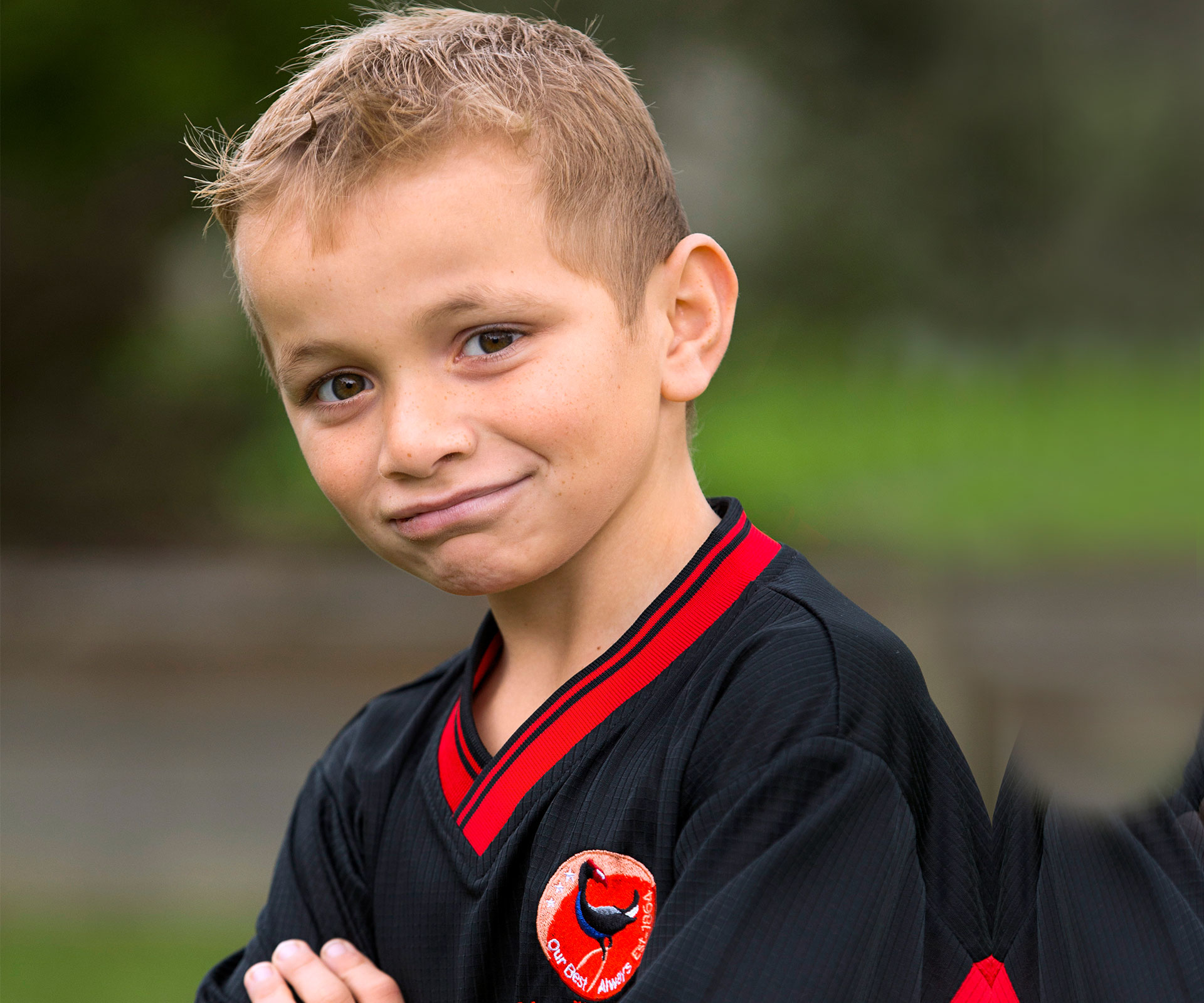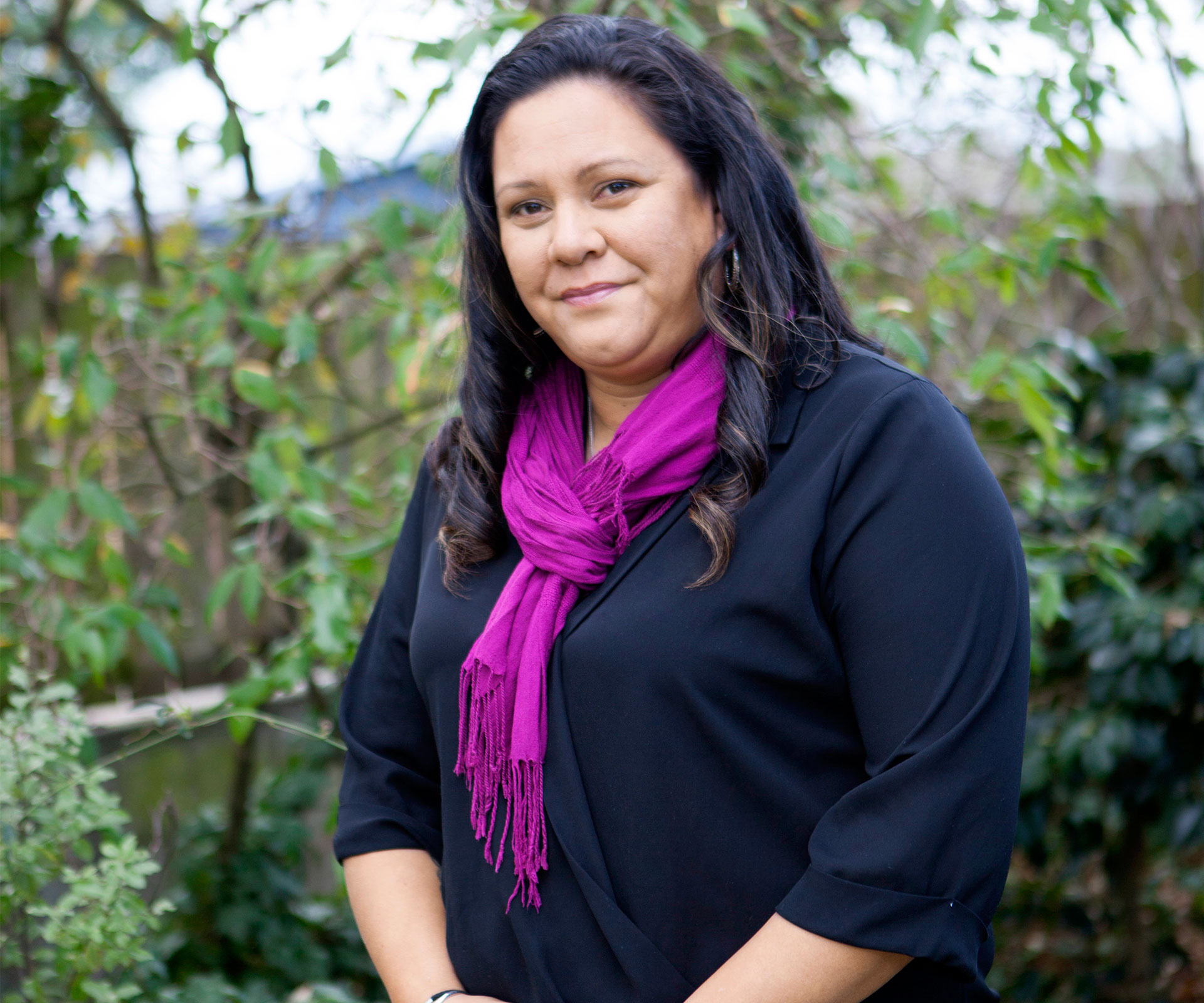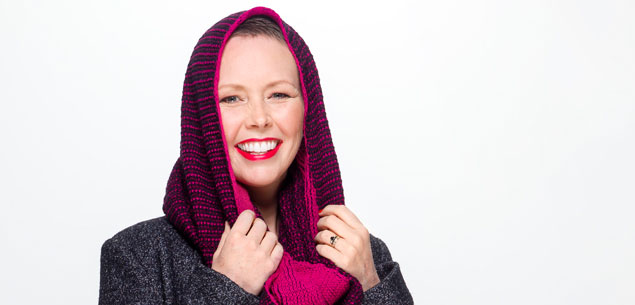Kicking a football around the backyard on a Sunday afternoon, Brendan Judd looks like any typical eight-year-old. But while he’s scoring goals in the Hamilton sunshine, he’s also receiving a blood transfusion right underneath his soccer shirt. After coming down with a mystery condition as a baby, Brendan has relied on blood donors to keep him alive – so far, he has received blood from more than 357 New Zealanders.
For Brendan’s mum Rachel (35), watching him live a normal life is wonderful, after he came so close to death at just eight months old. She and her husband Lewis (38) had taken Brendan to visit his grandparents in Christchurch when he became unwell. A doctor at the local accident and emergency centre first told them it was a virus, but the couple were forced to return the next day when Brendan began vomiting blood. After the doctor once again sent them home, the infant threw up on the counter and that’s when a quick-thinking nurse stepped in. Rachel says they owe Brendan’s life to her.
“She stood up to the doctor and asked us to stay. We didn’t know who to listen to,” she explains. “But we did stay and when Brendan’s temperature shot up to well over 40°C, she called an ambulance.”
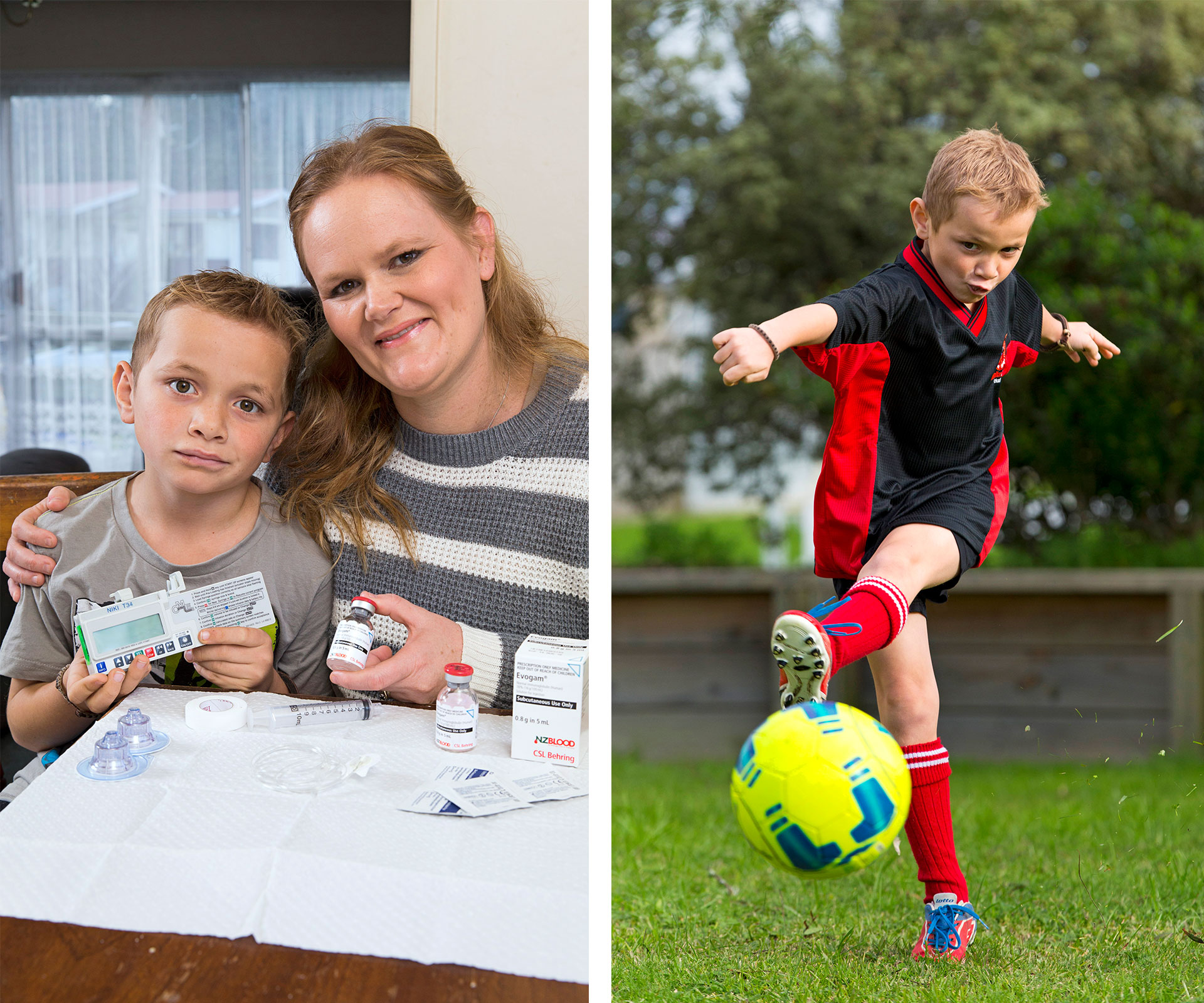
Left: Weekly transfusions keep Brendan on his feet. Right: The keen footballer keeps his parents on their toes.
Once in hospital, a lumbar puncture revealed Brendan was in the advanced stages of bacterial meningitis. Given a 10% chance of survival, all his frantic parents could do was watch him fight for his life. After two blood transfusions, their son’s condition began to improve and, after almost a month at Christchurch Hospital, he was allowed to travel back to Hamilton. But little Brendan’s troubles were far from over. Five weeks later, he began showing the same symptoms and was rushed back to hospital with meningitis again. Over the next two years, he had septicaemia three times and pneumonia twice.
“We didn’t know what was happening with him so it was an emotionally and financially difficult time. We couldn’t have other children, because we didn’t know if Brendan’s condition was genetic and even though he was on antibiotics constantly, he was getting breakthrough infections,” Rachel recalls.
When Brendan was three, the doctors recommended he undergo immunoglobulin therapy, which involves transfusions of a blood product made from plasma, every 21 days. Understandably for someone so young, getting a needle inserted was terrifying.
“He learned to fight and quite often the nurses had to restrain him,” Rachel says. “As he got older, we had to tell him he had to go to the hospital or he’d get sick and wouldn’t survive. It sounds horrible, but it was the only way for him to understand.”
Watching how far Brendan has come is quite remarkable. After starting school, doctors put him on another blood product which can be administered at home on a weekly basis. Brendan can prepare it, draw up the blood and even pull his own needles out. The whole process takes an hour-and-a-half and because the pump he uses is so small, Brendan can walk, run and even play soccer while carrying it in a bum bag.
For Rachel and Lewis, it means having the fridge full of around eight vials of blood each month that they pick up from the New Zealand Blood Service.
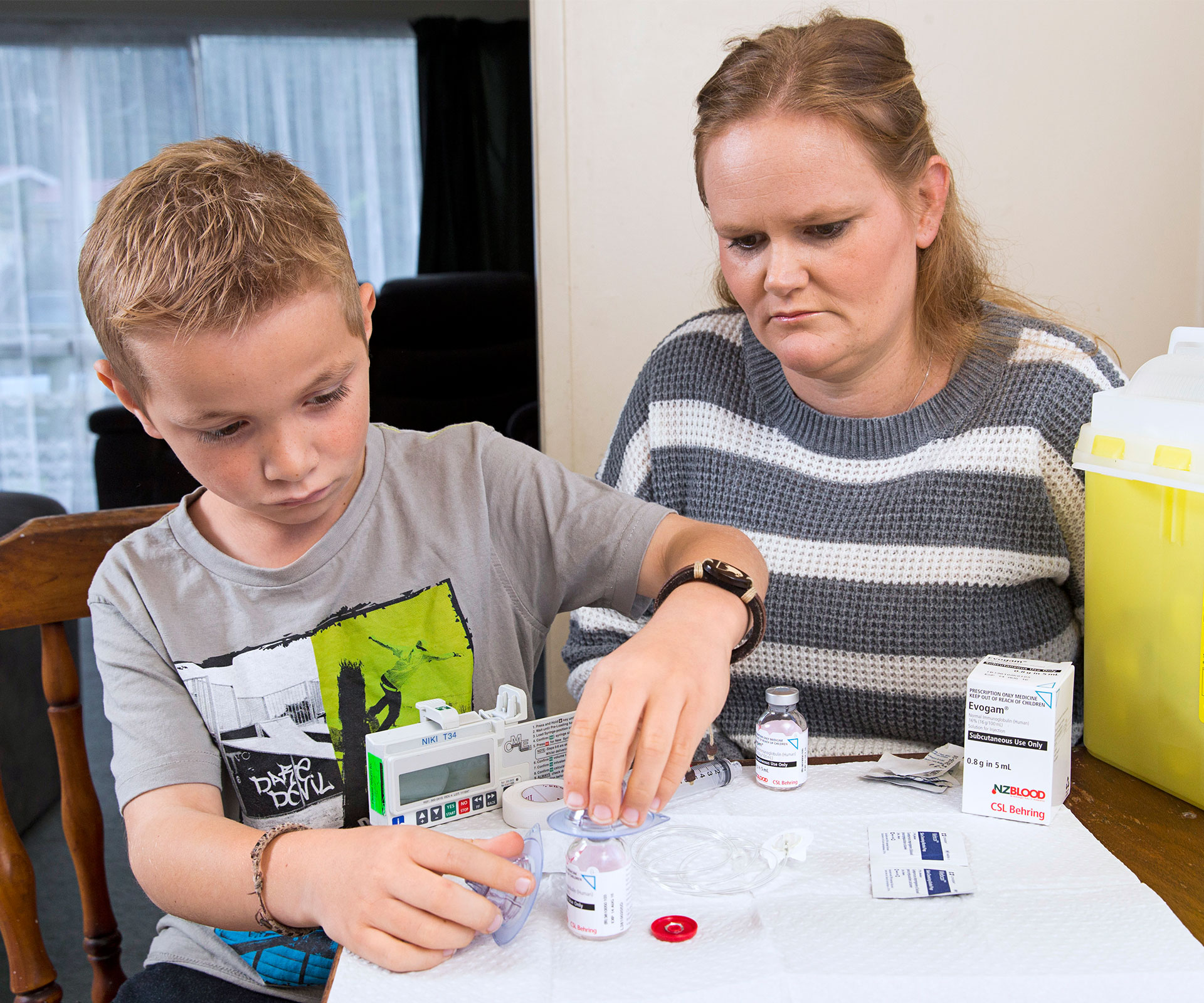
While most of us shy away from needles, Brendan has to administer his own blood transfusions on a weekly basis.
“He’s a good kid,” says Rachel with pride. “He knows what’s going on and that he has different blood. He made me cry one day when we were making cupcakes by saying he wanted to take them down to the donor centre, so that’s what we do from time-to-time – last school holidays, we gave them 60 cupcakes.”
Brendan now has a little sister Hayley (5), who doesn’t suffer from his condition. Although it remains a medical mystery, there is hope. A medical centre in Washington has offered to test Brendan’s blood and it’s hoped the Judds could have a diagnosis within a year.
Until then, Brendan will continue to rely on the blood of strangers every week. And for that, his family are forever grateful.
“I don’t know where Brendan would be today without it. He’s only able to play soccer because he gets the energy from his blood – and that’s also how he keep us on our toes!” she laughs.
Words by: Anastasia Hedge
